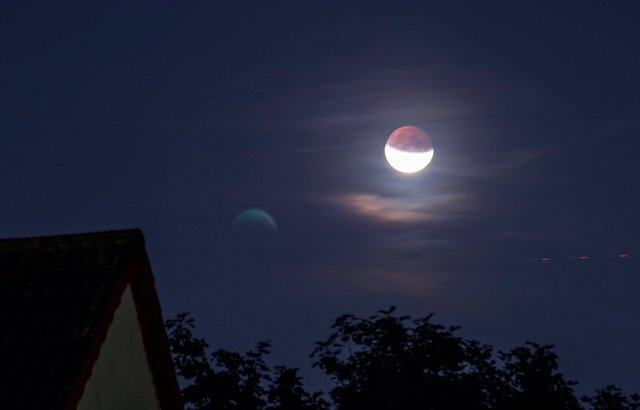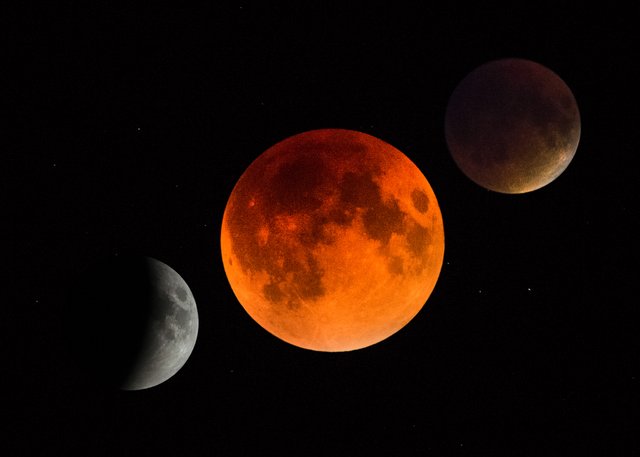Scientists and space enthusiasts look forward to the year's events each year, and they are never disappointed because space is always serving up exciting and occasionally dangerous events.

Similar to previous years, 2022 was jam-packed with breathtaking space events that enthralled even the most ardent space aficionados. The media pays a lot of attention to eclipses when they are scheduled to happen even though they are nothing new. Additionally, not every eclipse is the same because some are more exceptional and uncommon than others. In a year, there can be a maximum of seven total eclipses of the sun and moon, with a minimum of four.
1982 was the most recent year with seven total solar eclipses. We only got the bare minimum of four this year. On April 30, there was a partial solar eclipse; on May 15, there was a total lunar eclipse; and on October 25, there was a stunning solar eclipse. The final lunar eclipse of 2022 will occur on November 8th.
A lunar eclipse happens when the earth prevents the moon from receiving all or a portion of the direct sunlight from the sun. Only once per 29 lunar orbits around the earth does this cosmic event take place. Astronomers can predict eclipses extremely readily because the orbits of the earth and moon are quite predictable. Because the lunar orbit is tilted by about five degrees to the Earth's orbital plane, these alignments do not occur at every new and full moon, which is why there aren't eclipses every month. This phenomenon, known as a syzygy, occurs only occasionally when the sun, earth, and moon line up precisely enough for an eclipse to take place.

Lunar eclipses come in three different varieties.
Total Lunar Eclipse
The most breathtaking is a total lunar eclipse, which will occur this year on November 8; it occurs when the sun, moon, which should be in its full moon phase, and earth are perfectly aligned and the moon is in the umbral shadow of the earth. Due to the vivid red color of the shadow, which completely obscures the moon during this time while it is in the Umbro shadows, most people are surprised by the sight of this site. As most of you are probably aware, the "blood moon" is another name for this totality phase.
The Blood Moon
The planning to watch these must be done well in advance because these are likewise much infrequent. A little more often occur than the first type of eclipse.
There is a partial moon eclipse
Because of this, when the Earth's Shadow partially obscures the moon's disc, it makes the side of the moon that faces Earth appear extremely dark. The third and final kind of lunar eclipse is known as a penumbral eclipse. Simply the moon passing through the peripheral shadow causes it to occur. Unfortunately, most individuals miss the incident because it is so inconsequential. The moon is only a little darker than usual, which is the reason for this. We'll now look at the locations where this year's total lunar eclipse will be visible since the moment you've all been waiting for has finally come.
Earthquakes are supposedly predicted by lunar eclipses. On February 9, 1971, a 6.7-magnitude earthquake struck the foothills of the San Gabriel mountain in Southern California. A total moon eclipse happened fifteen hours later. Many people had the belief that the sun, earth, and moon were in conflict. According to popular belief, the sun and moon were pulling the earth in opposite directions. As a result, the earth no longer remained a sphere but was crushed into the shape of a rugby ball.
Any relationship is, however, incredibly tenuous. Whether you concur or disagree Are eclipses only random natural phenomena or do they have any significance?
In contrast to a solar eclipse, a lunar eclipse is risk-free and perfectly safe to observe with bare eyes. Bring your loved ones and friends so they may take in the breathtaking celestial display in your garden. By the way, did you know that total solar eclipses won't be feasible when the moon gets further away from the earth each year because, one day, billions of years from now, the moon won't be close enough to the planet to totally fall under its umbral shadow? We can enjoy seeing our planet's shadow on the brightest star in the sky while we wait.